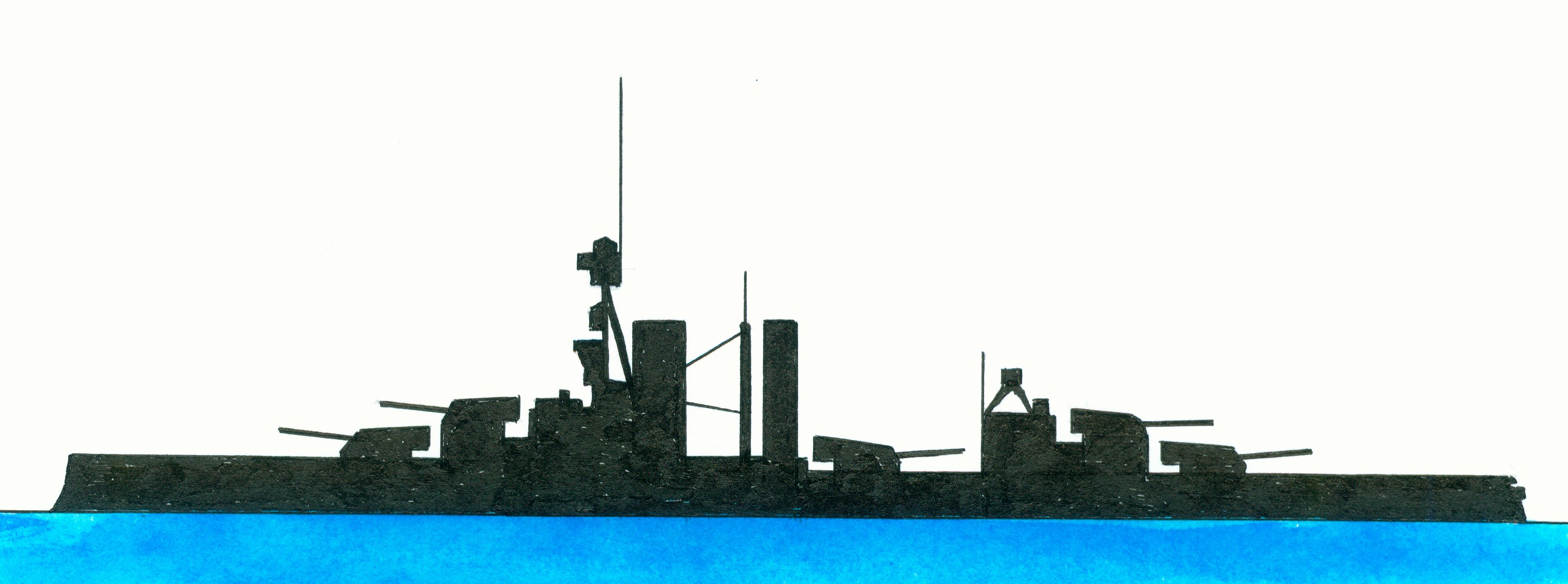King George V-class
Iron Duke-class
Queen Elizabeth-class
Of the Iron Duke-class consisting of the Iron Duke, Marlborough, Benbow and Emperor of India. Preceded by the King George V-class and succeeded by the Queen Elizabeth-class.
General specifications. Displacement of 25.000-29,500 (full load) tons and as dimensions 189,8 x 27,4 x 9,98 metres or 622.9 x 90 x 32.9 feet. The direct drive machinery consisted of 4 shaft Parsons turbines with 18 boilers delivering 29.000 ship allowing a speed of 21,25 knots and with a speed of 10 knots a range of 7.780 nautical miles. Fuel bunker capacity of 3.300 tons/3.200 long tons coals and 1.050 tons/1.030 long tons oil. The crew numbered 995-1.022 men. The armour consisted of a 30,5cm/12” thick belt, 20,32cm/8” thick bulkheads, 6,3cm/2.5” inch decks and the barbettes and turrets protected by respectively 25,4cm/10” en 28cm/11”. The armament consisted of 5x2-34,29cm/13.5” breech loading Mk VII guns on the centreline, 6-15,2cm/6” Ml VII guns in casemates, 2-3” quick firing 20 cwt anti aircraft guns and 4-53,3cm/21” submerged torpedo tubes.
Laid down at Vickers, Barrow-in-Furnesss on 31 May 1912, launched on 27 November 1913, renamed Emperor of India, completed in November 1914, commissioned on 10 November 1914 and finally stricken in 1929, used as a target for gun practices sunk in 1931 salvaged and sold to be broken up on 6 February 1932 arriving at Rosyth, Scotland on 16 February 1932 for this purpose, Her building was ordered as the Delhi.



